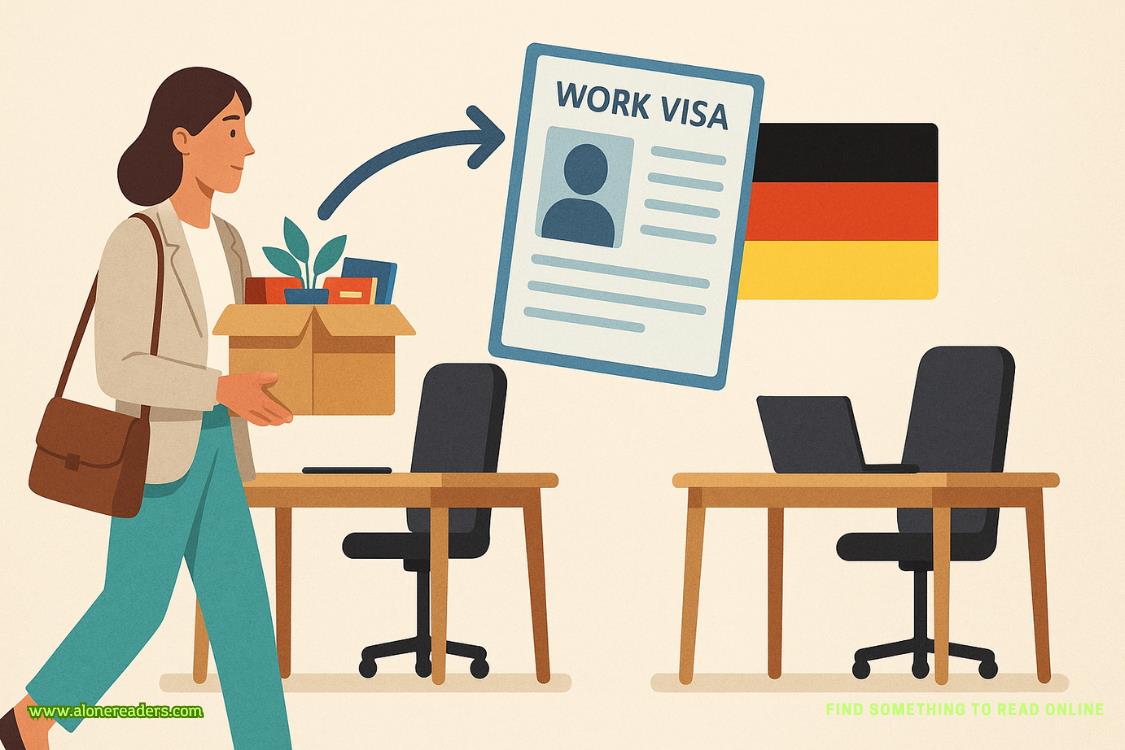Page 23 of The Little Provence Book Shop
She sat for a minute waiting for another message. Kevin, she knew, was not the fastest typist in the world. She flicked to the other screen and continued searching ISBN numbers for books, checking back every few minutes to see if anything else arrived. At last, there it was.
Hi Addy,
I am so pleased to hear from you!
And please don’t feel too bad for how you acted. I’m not sure I’d have been much different! Please believe me that I wanted to tell you so many times. But there was always this voice in my head telling me it wasn’t the right time – that you simply didn’t need more stress dumped on you. I guess that’s probably what Mum felt too. I hope you can forgive her and Dad too, in time?
And Addy, if you ever want to look for, well, anyone, I can help. Your birth mum, I think people tend to say. I’m happy to support you in finding answers. I know that our mum would want you to do what felt right.
I’m off to work now, but I’ll write more later.
Glad you’re OK, sis.
Kev xx
Alone in the shop, Adeline shut down the computer and stared at the blank screen. Her reflection, greyed out in the darksurface, wobbled in front of her. And she was struck again by the knowledge that the woman she’d thought she was didn’t really exist. That in some ways the reflection in front of her was of a stranger.
She closed her eyes and remembered pulling out the box from the pile and beginning to sort through its contents. It had been one of several boxes left over from sorting Mum’s stuff; part of the painful process of post-death admin.
When Mum had died, she’d left everything so organised for them. Adeline had been in awe of the way she’d set out the right papers, made everything straightforward. The rest of her things, she’d said, just take to the dump: recycle, give away.
Of course, that part hadn’t been as easy as their mother had imagined. Clearing old furniture and sending it to a charity, putting Mum’s clothes in bags ready to donate. Easy on the face of it, in a practical sense. But every item they’d dispatched had felt like a bereavement in itself. They’d each kept one or two of Mum’s things and the rest had needed to be disposed of before the house sale could go through. Adeline felt her eyes well, remembering how she’d had to hold her emotions in when bagging up Mum’s jumpers and T-shirts. So familiar that she’d wanted to simply wrap herself in them and sob.
Then suddenly – a month ago – it had been done. Except for a few boxes of photos and keepsakes that neither she nor Kevin had had the heart to throw away, and neither had had the strength to go through. They’d gone, instead, to the loft in Adeline’s tiny, terraced house. They’d get to them eventually, they’d told themselves.
She still wasn’t sure what had led her to opening the box that day. She’d returned to work a few days earlier after compassionate leave, with her redundancy date looming, filled with a kind of restless energy. It had made sense to occupy herself withsomething, and for some reason she’d chosen the box at the back of the stack to open first.
She’d almost not reached the certificate. It had been buried under piles of baby photos – faded pictures of her in Kevin’s arms as a baby; of her mum pushing her in a pram. Sporting the kind of clothing styles that made her feel ancient, as if she were part of history.
Then she’d pulled it out – noticing her name – and had read the words ‘Adoption Birth Certificate.’ She’d got her own, shorter, birth certificate at home. The one that she’d always used for identification. But this one she’d never seen. And there she’d learned that a week after her birth, in the London High Court of Justice Family Division, the strangers she’d called Mum and Dad her whole life had adopted her as their own.
Her first instinct had been to call Kevin. He’d answered at work, his conversation limited by the fact that he had to keep his voice low. She’d gabbled out the information, feeling almost high on adrenaline. And when he’d finally responded, his voice hesitant, she’d suddenly realised that what she’d told him wasn’t news to him at all.
That’s when she’d thrown the phone in a sudden fit of rage, and seen it shatter against the wall.
She’d been stupid – hot-headed, her mum had used to say when she’d get in a temper as a child. She’d always had this explosive force inside her, one she’d learned to tame over the years. She wasn’t often impulsive, impetuous now. But the news had been too much, too shocking. That the mother she’d mourned hadn’t really been her mother. That the childhood she remembered had, in part at least, been a lie.
Kevin had come around later, dishevelled in his work suit. She’d let him in, warning him that Lili was asleep upstairs, that they had to be quiet. They’d had a whispered argumentin which he’d confessed he’d always known. After all, he’d been four when they’d adopted her. ‘Mum developed some health problems after having me. The doctor said she couldn’t have any more kids. She always said she’d tell you when the time was right,’ he said. ‘We spoke about it, you know. Towards the end. But she was scared and I just couldn’t force her, not then.’
‘I wish you had, or you’d told me or something. There are things I would have asked her. I…’
‘I know. But I felt it was her decision; her thing to tell. She was dying; you know what it was like in those last weeks. I couldn’t think about anything else. And I’ll be honest, Adeline. I didn’t think it mattered that much. You were – are – my sister and I love you and it didn’t seem important.’
‘Not important!’
‘I don’t mean it that way. I realise it’s… Information about your past is really important. But it didn’t affect how I felt, how we were as a family. We were – we are – justus.’
‘But you don’t understand,’ she’d whispered as loudly as she’d dared. ‘Everything about my life I’d thought was true, isn’t. I don’t know who I am any more.’
‘You do. You are the same person, Adeline. Just more… well, maybe with a bit more of a back story than you’d thought,’ he’d said, trying to smile.
But it wasn’t the time for smiles. ‘This isn’t a joke to me, Kevin. It’s my life.’
He’d told her what little they knew. That her mother had been French, had come over with her family to London for a year. She and her British father had been teenagers. And the pregnancy had been unplanned. They’d arranged the adoption before she’d even been born.
‘That’s all you know?’
‘Sorry. It was a closed adoption. We didn’t get any real information.’
- One Night Only by Tara Pammi
- Sofa King Wanted by Alexa Riley
- Beloved Beauty by Georgia Cates
- Gunner by Winter Sloane
- Sofa King Safe by Alexa Riley
- Eat Slay Love by Kenya Wright
- Forever C*cky by Skye Turner
- Property of Woods by Glenna Maynard
- Desperate Temptations by B. Sobjakken
- Wicked by Dani Da Silva
- Sex, Lies, and Margarita Mixes by Skye Turner
- Heat Stroke by Skye Turner
- The Games We Play by Berlin Wick
- The Promises We Break by Berlin Wick
- Gorgeous Nightmare by Roza Lynne
- All I Want for Christmas by Nora Roberts







